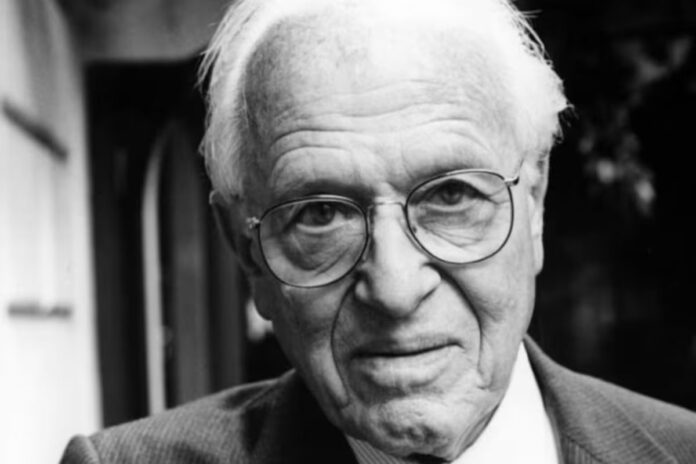Luigi Luca Cavalli-Sforza (1922–2018) was an Italian geneticist renowned for his pioneering work in population genetics. He taught at several prestigious institutions, including the University of Parma, the University of Pavia, and Stanford University, where he made significant contributions to our understanding of human genetic diversity. Cavalli-Sforza’s research focused on the genetic variation in human populations and how it relates to human evolution, migration patterns, and the spread of cultures.
Introduction
Luigi Luca Cavalli-Sforza was a visionary scientist whose research in genetics and anthropology helped reshape our understanding of human history. Through his groundbreaking work in population genetics, Cavalli-Sforza illuminated the paths our ancestors took as they migrated across the globe. His studies not only bridged the gap between science and anthropology but also revealed the deep genetic connections that tie human populations together. In this article, we’ll dive into Cavalli-Sforza’s remarkable contributions and how his legacy continues to influence genetics and evolutionary biology.
The Life and Career of Luigi Luca Cavalli-Sforza
Early Life and Education
Born in 1922 in Genoa, Italy, Luigi Luca Cavalli-Sforza was destined to become one of the foremost geneticists of his time. After earning a degree in medicine from the University of Genoa, he turned his attention to genetics and anthropology, fields that were still in their infancy. He later moved to the United States, where his research blossomed, leading him to make groundbreaking discoveries in human genetics.
A Visionary in Genetics and Anthropology
Cavalli-Sforza’s work primarily focused on human population genetics, which studies the genetic composition of populations and how it changes over time. He was one of the first to use genetic data to map the movement and evolution of human populations, contributing significantly to the understanding of how different groups of people are related. His studies showed that human genetic diversity is deeply influenced by ancient migration patterns, challenging traditional ideas about the isolation of populations.
Key Contributions and Discoveries
Human Migration and Genetic Diversity
One of Cavalli-Sforza’s most significant contributions was his development of the concept of the “gene flow” between populations. By analyzing genetic markers, he showed how human groups are more interconnected than previously thought, and how migration over millennia has shaped the genetic landscape of the world. His work in mapping human genetic diversity painted a more complex picture of migration, demonstrating that our ancestors’ journeys were less isolated and more interconnected.
The Cavalli-Sforza Model of Population Genetics
Cavalli-Sforza, along with his collaborators, created mathematical models to explain how genetic traits are passed down through generations. These models helped to explain the relationship between genetics and geographic distribution, providing a framework for understanding how environmental and cultural factors influence genetic variation. His work led to the development of “cladistic” methods, which have become essential in the study of genetic relationships.
The ‘History and Geography of Human Genes’
In 1994, Cavalli-Sforza and his team published The History and Geography of Human Genes, a monumental work that combined genetics with the history of human migration. The book mapped the genetic diversity of populations around the world, offering insights into how human groups have evolved and interacted over thousands of years. This work cemented Cavalli-Sforza’s place as one of the foremost authorities in human genetics.
Luigi Luca Cavalli-Sforza’s Influence on Modern Genetics
Impact on Evolutionary Biology
Cavalli-Sforza’s work has had a lasting impact on evolutionary biology. His innovative approach to studying human evolution through genetics has opened up new avenues for research in anthropology, archaeology, and even medicine. By showing that genetics could be used to trace human history, he bridged the gap between the biological and social sciences, creating a holistic understanding of human development.
Collaboration with Other Scientists
Throughout his career, Cavalli-Sforza collaborated with numerous prominent scientists, enhancing the depth of his research. His work with American geneticist Anthony J. Edwards, for example, resulted in significant advancements in the understanding of genetic markers and their role in tracing human evolution. Cavalli-Sforza’s ability to blend different scientific disciplines has inspired generations of scientists to look beyond traditional boundaries.
Legacy and Recognition
Awards and Honors
Cavalli-Sforza’s contributions have been recognized worldwide. He was awarded several prestigious prizes throughout his career, including membership in the National Academy of Sciences. His ability to influence both the scientific community and the public through his accessible writings ensured that his discoveries reached a broader audience, helping to shape the modern understanding of genetics.
Enduring Influence
Luigi Luca Cavalli-Sforza’s work continues to influence fields as diverse as anthropology, genetics, and archaeology. The insights provided by his studies of genetic variation and human migration have paved the way for future research on topics like human disease, population health, and even forensics. His legacy is one of innovation, collaboration, and a relentless pursuit of knowledge that transcends scientific boundaries.
FAQs about Luigi Luca Cavalli-Sforza
What is Luigi Luca Cavalli-Sforza most known for?
Cavalli-Sforza is best known for his pioneering work in human population genetics, particularly his studies on how genetic traits are passed down and how human populations have migrated over time.
How did Cavalli-Sforza contribute to the field of genetics?
Cavalli-Sforza helped develop mathematical models that explained how genes are distributed across populations and influenced the understanding of human evolution and migration patterns.
What is ‘The History and Geography of Human Genes’?
This is Cavalli-Sforza’s most famous work, where he used genetic data to map the history of human migration and population genetics, providing a groundbreaking analysis of how human groups are related.
What impact did Cavalli-Sforza have on modern genetics?
Cavalli-Sforza’s work has had a profound influence on modern genetics by helping to establish population genetics as a key area of study, influencing research on human disease, evolution, and anthropology.
Final Thoughts
Luigi Luca Cavalli-Sforza’s legacy is a testament to the power of science to reshape our understanding of the world. His groundbreaking work in genetics and human evolution not only deepened our knowledge of where we come from but also bridged the gap between science and society. As we continue to explore the complexities of human genetics, Cavalli-Sforza’s contributions will remain a guiding light for generations of scientists to come.




